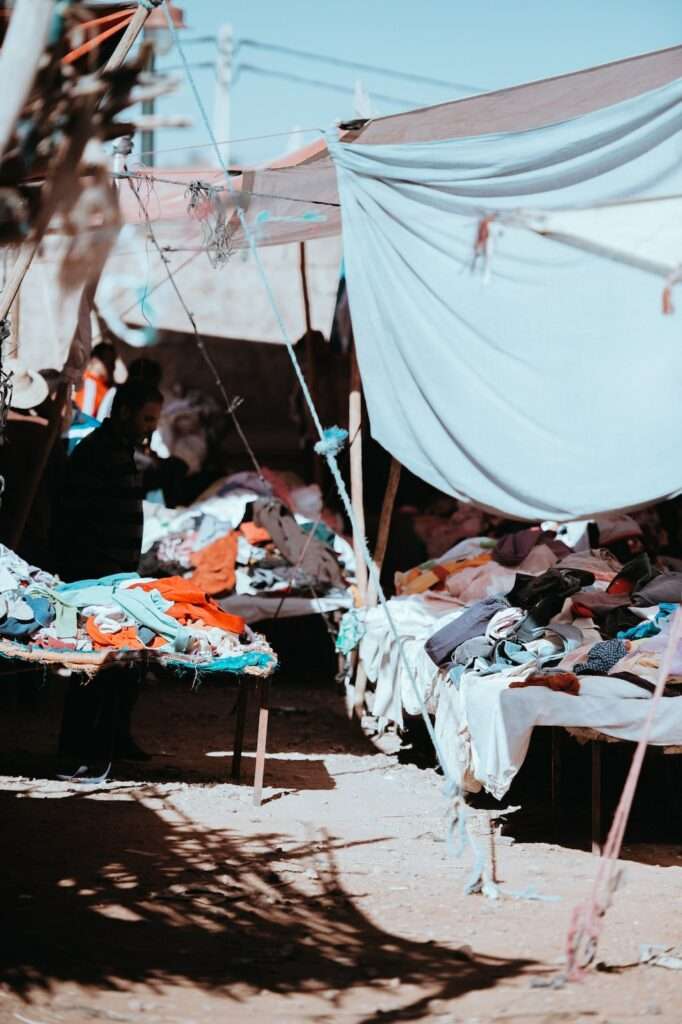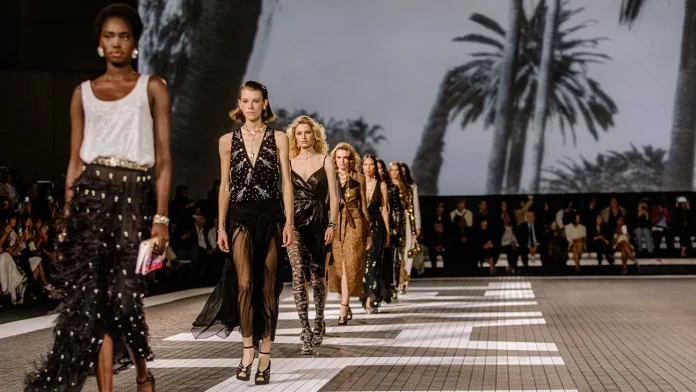A new effort from Fashion for Good is aiming to keep rewearable items in circulation for as long as possible.
Fashion for Good, a global platform for fashion innovation, has launched an ambitious 18-month project to optimize the sorting of rewearable garments. This initiative, known as the “Sorting for Circularity” framework, employs advanced technologies like artificial intelligence (AI) and machine learning. The project’s focus is to keep rewearable textiles in circulation, thereby reducing their contribution to global waste streams and landfills.
The urgency of this project is underscored by the alarming statistics on textile waste, the organization says. Over the last fifteen years, global textile production and consumption have doubled, while the frequency of garment usage has plummeted by 40 percent. This trend has led to garments being discarded after an average of just seven uses. In the European Union, the situation is particularly dire, with the export of used textiles tripling in the last two decades. Many of these garments are labeled “fit for reuse” but often end up in waste streams, landfills, or incinerated due to the massive volume and the industry’s lack of understanding of the demand and criteria for resale.

Katrin Ley, Managing Director of Fashion for Good, emphasized the importance of this initiative: “As our Sorting for Circularity framework expands, we’ll be able to address the root cause of shifting the waste burden elsewhere. Addressing this requires an agreed-upon framework for quality and resale potential in key export regions as well as developments in using AI sorting. This pioneering consortium will provide crucial insights for policy developments and investments towards a circular economy.”
The project involves testing automated sorting technologies that leverage machine learning and AI. These technologies will collect vital product information such as color, style, garment type, and quality. This data will then be used to make informed decisions on sorting, aligning with the requirements of local, European, and export resale markets. The goal is to optimize the flow of textiles, ensuring they achieve their highest value potential.
The Rewear Project builds upon the initial Sorting for Circularity framework launched in 2021 across Europe, India, and the United States. This framework aims to harmonize the collection, sorting, and recycling industries, advancing textile-to-textile recycling technologies and the resale industry.
The Sorting for Circularity Europe: Rewear Project is driven by Fashion for Good, with significant funding from brand partners including Adidas, Bestseller, Bonprix, C&A, Inditex, Levi Strauss & Co., Otto Group, PVH Corp., and Zalando. The Circle Economy Foundation leads the creation and implementation of the methodology, supported by Consumption Research Norway, Oslo Metropolitan University, and Revaluate.

The project also collaborates with the largest industrial textile sorters in Europe, including Erdotex, ModaRe, Humana People to People Baltic, and Wtorpol. This collaboration showcases how different stakeholders — brands, sorters, and innovators — can work together to comply with evolving regulations.
Marieke Koemans-Kokkelink, Head of Sustainability at Erdotex, said she hopes the project will help to clarify the “myths and half-truths” on post-consumer waste dumping, “but also salvage those by understanding the processes and journeys these garments travel. Then we can reach true circularity.”
The news comes as Fashion for Good announced earlier this month that it has decided to close its Amsterdam Fashion for Good Museum. Beginning in June, the space will be transformed into an expanded, multi-functional co-working area. This move is part of its strategy to deepen collaboration within its community of sustainable fashion industry innovators.
The Museum will bid farewell with a final exhibition focusing on circularity, set to open at the end of January. This event is designed as a grand finale, showcasing the organization’s commitment to sustainable fashion practices.
Related on Ethos:


